What Bruce Rioch did for Arsenal – looking back 20 years on from his arrival
The hard-nosed Scot gets a bad rep for his ill-fated season at Highbury, but Jon Spurling says plenty of good was done too...
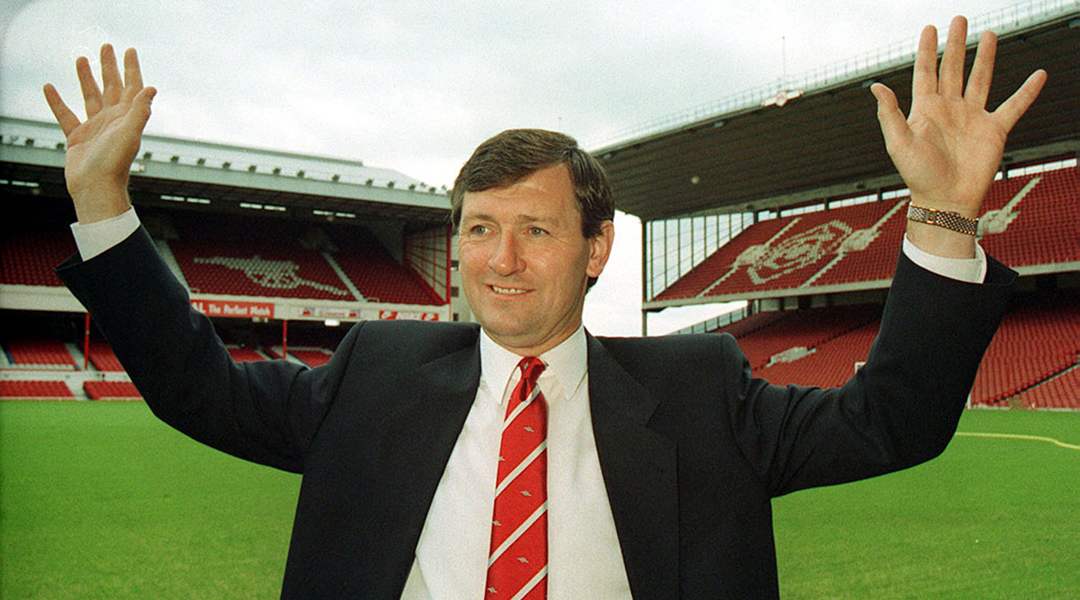
Twenty years ago, Bruce Rioch was unveiled as Arsenal's new boss having guided Bolton to successive promotions. His one-year tenure is hardly remembered fondly, punctuated by bust-ups with senior pros including Ian Wright, and a frosty relationship with vice chairman David Dein. Thus, the former Bolton manager has been virtually airbrushed from Gunners history.
Rioch was dismissed as a dour "interregnum" boss who simply kept the seat warm for Arsene Wenger, but here are five reasons why Arsenal fans and Wenger should be grateful to the straight-laced Scot...
1) He bedded in Dennis Bergkamp
It was (then) Monaco manager Wenger who recommended to buddy David Dein that the Inter Milan forward would be the signing to usher in a new era at Highbury, but Rioch helped ease the brilliant Dutchman into the hurly-burly of the Premier League during the 1995/96 campaign.
Bergkamp freely admitted that his confidence had taken a hefty knock during his troubled two-year stay in Italy, and although glimpses of skill were evident in his early Arsenal matches, it wasn’t until game six that he scored his first Gunners goals against Southampton.
Bruce nursed, cajoled, and eased me into what was a different style of football
Although Rioch later insisted that “Dennis would have found his feet eventually whoever the manager was,” Bergkamp remains eternally grateful to the man who “nursed, cajoled, and eased me into what was a different style of football, and made my family feel so welcome in England. He talked me through the different approach needed to be successful in England.”

The combined £12 million that Arsenal shelled out on Bergkamp and David Platt represented proof that the club were finally ready to loosen the purse strings and throw off the defensive, blue collar approach which had blighted the latter years of George Graham's regime.
Get FourFourTwo Newsletter
The best features, fun and footballing quizzes, straight to your inbox every week.
Bergkamp acted as a magnet for other foreign signings over the next few years, including Patrick Vieira and fellow Dutchman Marc Overmars. When Wenger arrived in September 1996, two months after Rioch’s departure, Arsenal were ready to go truly multicultural and Bergkamp, who’d put his Italian nightmare behind him with Rioch’s help, was the first piece of the jigsaw.
2) He introduced more of a passing style
The Scot was very clear from the outset about what he wanted at Highbury. “I wanted to leave the era of the long ball behind us, and begin to get the defence to pass balls through the midfield, rather than simply launching the ball forward,” he reflected.
Rioch began to experiment, playing centre-back Martin Keown in midfield for several games
The Gunners were certainly easier on the eye during the 95/96 campaign, if prone to stuttering on their travels in crunch games. Rioch had to settle for a largely functional midfield, however, with the likes of John Jensen, David Hillier and Steve Morrow all still present and correct. He planned to add “a more creative presence to the centre of the pitch,” although he wasn’t at the club long enough to make good on this.
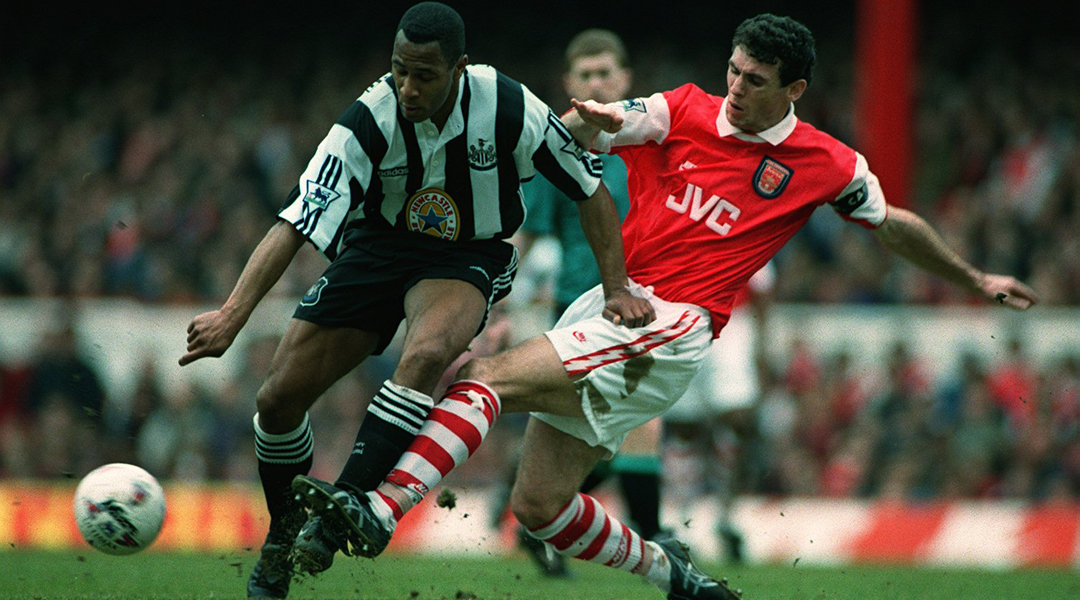
However, Rioch began to experiment, playing centre-back Martin Keown in midfield for several games. He insisted: “Martin may not agree at the moment, but in the long-term it will make him a more effective defender.” It was a point with which Keown concurred, explaining how “Rioch helped improve my distribution of the ball no end.” Paul Merson was less effective in this area, although his insistence on balls to feet was a precursor of what was to come. It was Wenger’s predecessor who first introduced a change in playing style to the club, and by and large the players were receptive to the change... with one exception.
3) He addressed the Ian Wright problem
When Rioch arrived at Highbury, the single-minded Arsenal goal-machine was already 32. Gunners skipper Tony Adams later admitted that he “wondered if we’d ever win the title with Ian in the team”. Rioch was insistent that Arsenal “need to find a way of scoring goals from all across the team, and not be on one man”.
Rioch labelled Wright a 'Charlie Big Potatoes' and Wright handed in a transfer request after a verbal spat with his manager
Wright and Rioch had a tempestuous relationship. Rioch labelled Wright a “Charlie Big Potatoes” and Wright handed in a transfer request after a verbal spat with his manager following an FA Cup defeat to Sheffield United. Wright was used to feeding on scraps and long balls from the defence, but with the development of the passing game, he began to feel starved of service. Wright made his feelings about Rioch known to vice chairman Dein, and the writing was on the wall for the Arsenal manager.
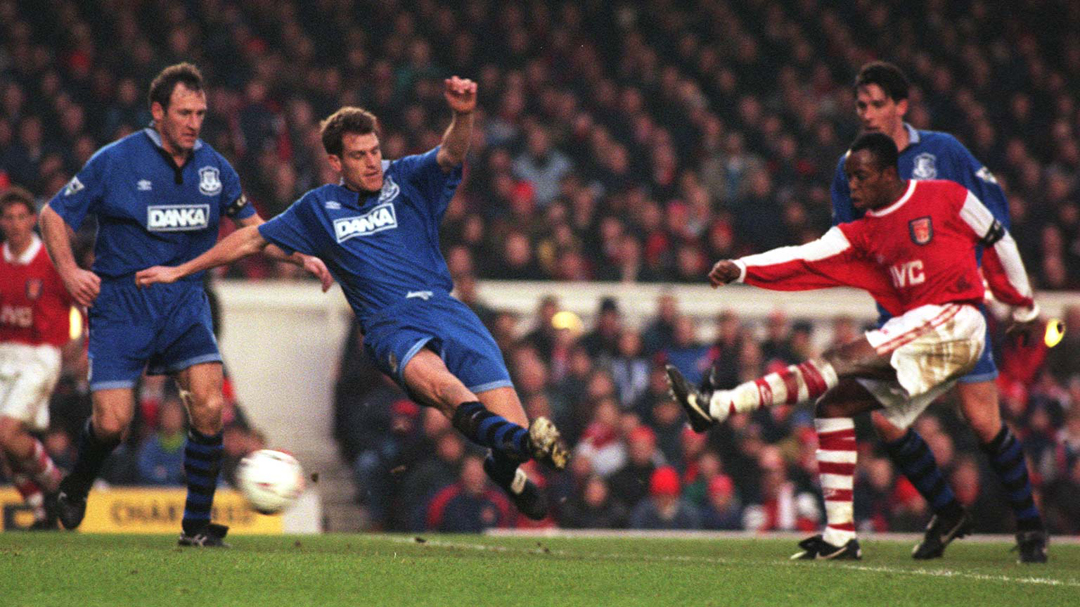
It’s true that Rioch was often supremely unsubtle with Wright (the striker allegedly nicknamed his manager “Dagenham” because he believed him to be only a couple of stops short from Barking), and Wright did plunder goals aplenty for another couple of seasons, but Rioch realised the truth: for a club to win the league, goals needed to be more liberally spread. Two years later, Wenger’s Arsenal lifted the top-flight trophy, and following injury, Wright didn’t figure in the title run-in – his place had been taken by Nicolas Anelka. Rioch’s hunch about Wright was correct, but his heavy-handed approach backfired on him.
4) He began fumigation process after Graham era
“I feel like (renowned agony aunt) Marje Proops sometimes, having to deal with you lot,” barked an exasperated Rioch at the team during a particularly trying week. There were tantrums, personal crises, and fitness concerns over top stars. Rioch took a hard line with some of Arsenal’s misfiring and stroppy players, and coaxed others into restoring their reputation.
I feel like Marje Proops sometimes, having to deal with you lot
Unashamedly puritanical in many respects, he suggested: “Young footballers should be married, and looking after themselves in the evenings to ensure they’re fit and healthy.” He realised that if Arsenal were to be successful, the drinking culture at the club had to stop. Rioch despaired of the overweight and temperamental John Hartson, omitting him from the team because he remained unconvinced about his match fitness.
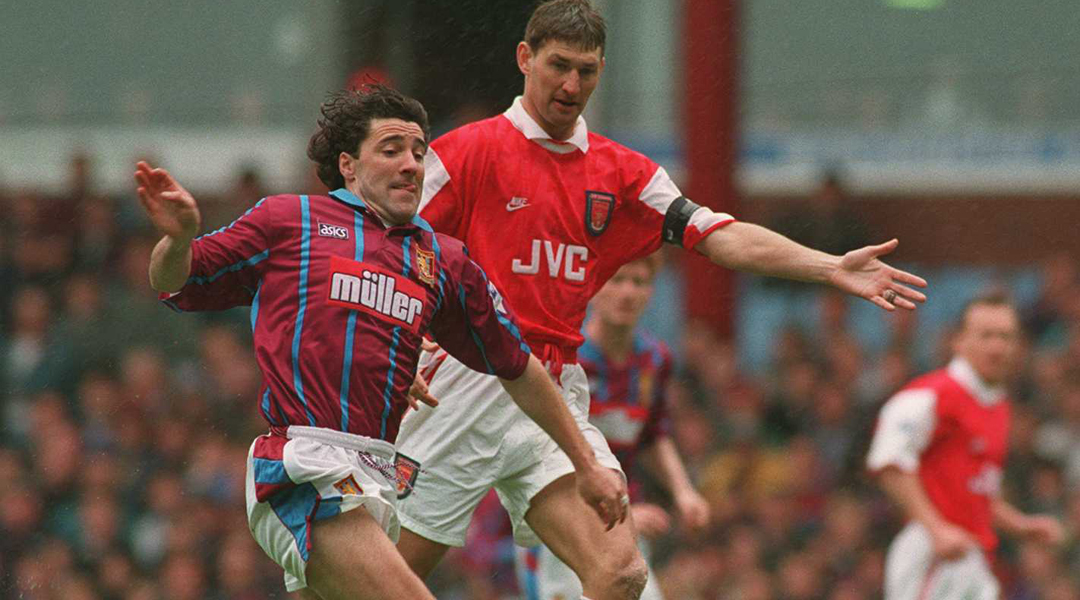
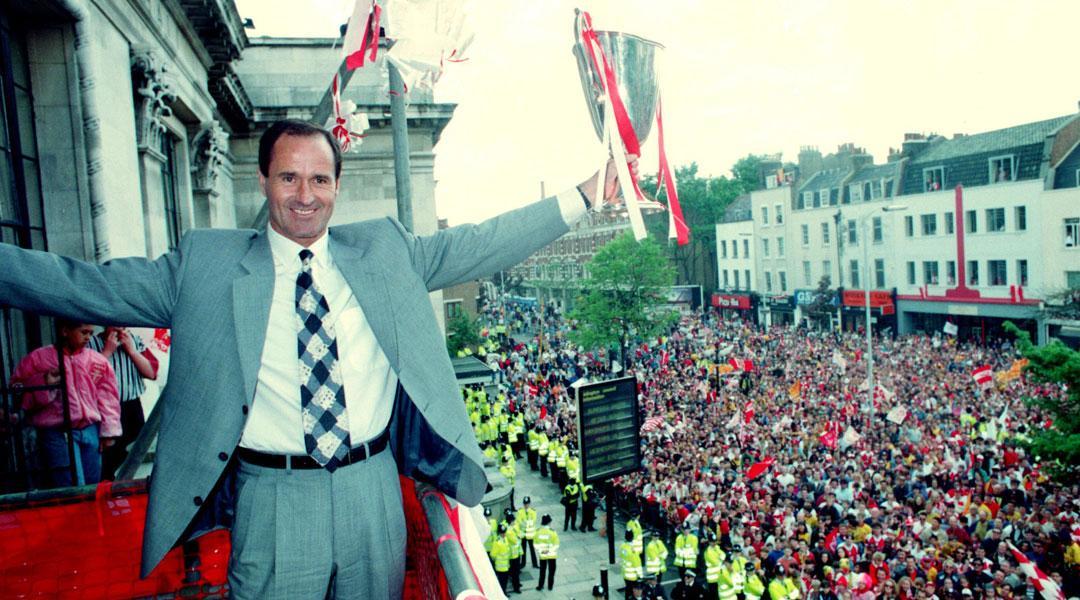
Wenger would concur with this view. He also got to work on the fitful Ray Parlour, urging him to bring a more consistent and mature approach to his play and his lifestyle. Rioch went out of his way to man-manage Merson, who was still in the process of heavy therapy following his confession the year before that he was an alcoholic. Merson remains eternally grateful for Rioch “spending so much time with me when he had a difficult enough job to do already”. Perhaps history would have turned out differently for Rioch had skipper Adams not experienced his own personal demons, having suffered an alcoholic meltdown following Euro 96. “I wasn’t there for Bruce in the dressing room,” he admitted. But Rioch was there for some of Arsenal’s misfiring stars, who flourished under Wenger.
5) He gave full-backs licence to roam
In the final year of Graham’s tenure, both Lee Dixon and Nigel Winterburn expected to be sold. They looked jaded and crotchety. But the truth was that they were just tired of the defensive straightjacket within which they were expected to operate. By autumn 1995, however, the pair could be seen bombing up and down the wings like they were 21 years old again. Following a hard-fought 1-0 win over Manchester United in November 1995 (Dixon and Winterburn excelled), Alex Ferguson asked whether the pair “had 10 shredded wheats for breakfast this morning”. They regained their old tenacity too: witness Dixon’s fractious encounters with Newcastle’s David Ginola that season at Highbury. It was Wenger who added years to the full-backs’ careers by revolutionising their diets and exercise routines, but Rioch planted the seed that just because were in your 30s it didn’t mean your days of pelting up and down the wings were over.
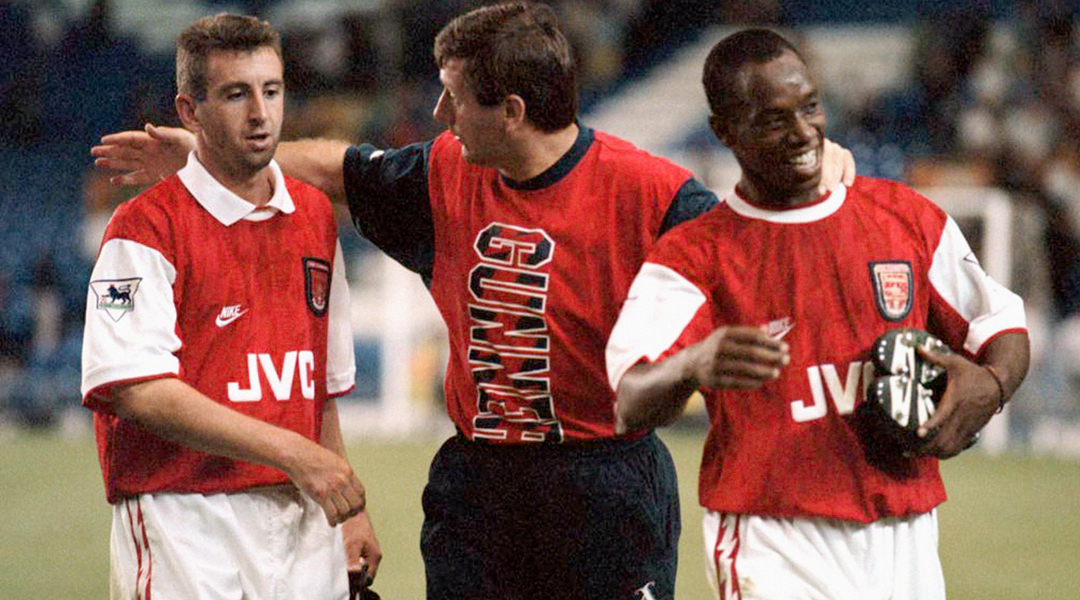
Jon Spurling is a history and politics teacher in his day job, but has written articles and interviewed footballers for numerous publications at home and abroad over the last 25 years. He is a long-time contributor to FourFourTwo and has authored seven books, including the best-selling Highbury: The Story of Arsenal in N5, and Get It On: How The '70s Rocked Football was published in March 2022.

